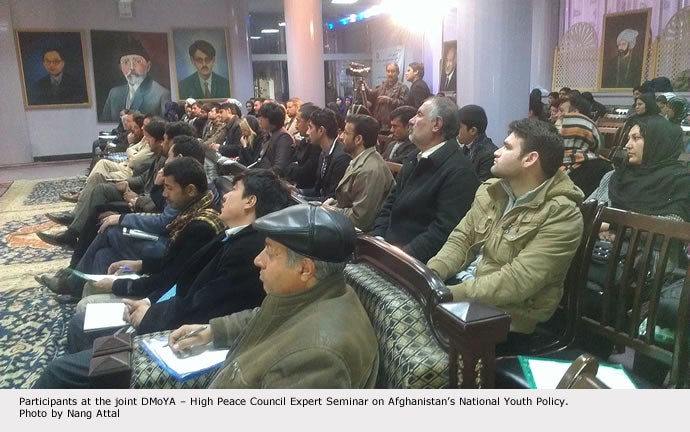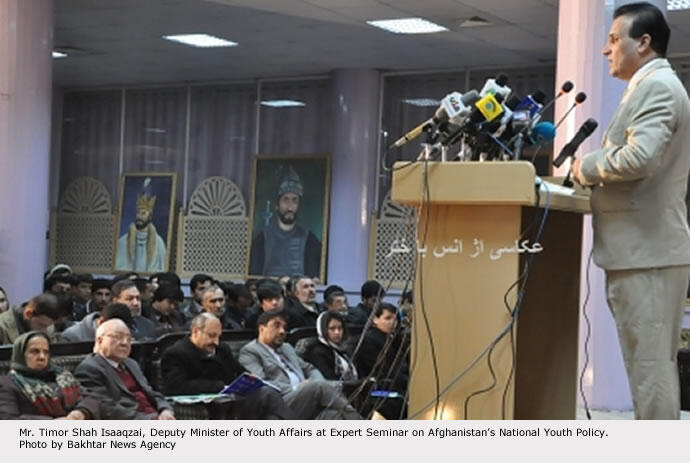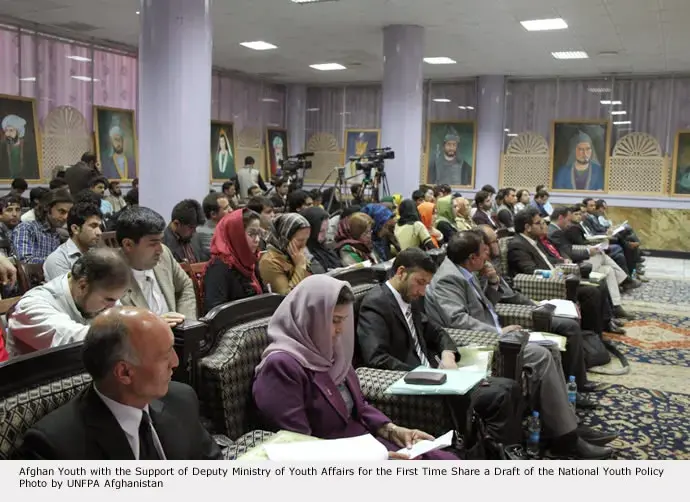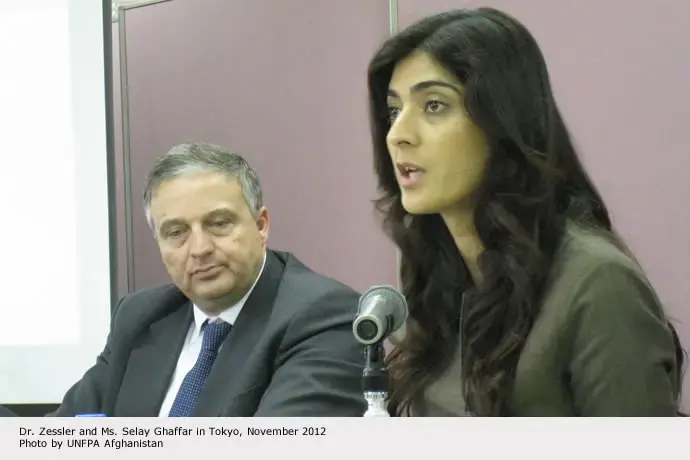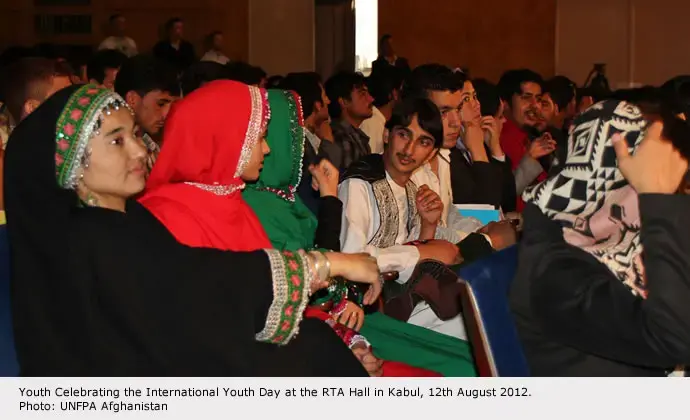As part of the Government's ongoing public consultation process for the development of the country's first National Youth Policy, on 23 January 2013 the Deputy Ministry of Youth Affairs (DMoYA) with the support of High Peace Council and the technical support of UNFPA held an expert seminar titled Youth in Afghanistan: Challenges and Recommendations.
Recognizing the challenges and opportunities presented by the country's sizable youth population (approximately 68 per cent of Afghanistan's population of around 26.5 million people is under the age of 25) the DMoYA with technical support from the United Nations Population Fund (UNFPA) has brought together a broad coalition of government and non-government stakeholders to draft a National Youth Policy. The policy, which will seek endorsement from the Council of Ministers and approval by the National Assembly in mid-2013, is critical for putting youth issues high on the country's development agenda and for strengthening coordination of youth related policies and interventions.
Underlining the Government's strong commitment to creating better and equal opportunities for the country's youth, His Excellency President Hamid Karzai sent a message to the event's participants in which he stressed that the development of a national youth policy was an important step towards realizing the potential of Afghanistan's young women and men. The President reminded the audience that the process of drafting the policy document should be inclusive and as such involve all national and international stakeholders, particularly youth organizations. In his message, the President also made a strong call for evidence-based policy formulation to ensure that the document would address the real needs of the county's young people.
In his opening remarks, the Deputy Minister for Youth Affairs, Mr Timor Shah Isaaqzai, reiterated the need for a youth policy which was grounded in up to date research and welcomed in this context the Afghanistan Youth Assessment Study. The study, whose final draft is currently under review, was jointly commissioned by the DMoYA, UNFPA and the United Nations Development Programme (UNDP). The study presents a critical milestone for the DMoYA and its partners' continuous efforts to close the gap in youth specific socio-economic data.
While the representatives and academics addressed a great variety of issues affecting today's youth, there was broad agreement among all presenters that Afghanistan can only achieve peace and progress when the country is able to provide its young women and men with opportunities for meaningful economic, social and political participation.
The recommendations made at the seminar will be reflected in the final draft of the National Youth Policy which will be presented to the public for further deliberation in March 2013.
